This Week in Freethought History (April 8-14)
(The following is a transcript of a LIVE broadcast by John Mill, the radio persona of Ronald Bruce Meyer. “This Week In Freethought” airs on the American Heathen® internet radio show. Air date of this particular segment: 04/14/12)
Here’s your Week in Freethought History: This is more than just a calendar of events or mini-biographies – it’s an affirmation that we as freethinkers are neither unique nor alone in the world, no matter how isolated and alone we may feel at times.
 It was 2,572 last Sunday, April 8, according to tradition, that Siddhartha Gautama, the founder of Buddhism, was born in what is now modern Nepal (560 BCE). Through introspection and observation, at the age of thirty-five he earned the title Buddha, or “Enlightened One” (Sanskrit सिद्धार्थ गौतम). For the rest of his life, which by some accounts was eighty years, Buddha helped others reach enlightenment. Buddha lived at a time of great spiritual revolution in Asia and Asia Minor: the same centuries saw the arrival of the great Greek-Ionian thinkers, Lao-Tse and Confucius in China, and Mahavira, the founder of modern Jainism, in India. It is dishonest to presume that so “spiritual” a thinker must have believed in a God. In fact, Buddha never mentioned God or gods or souls and it was later generations of Buddhists that morphed his ascetic ethic into a religion.
It was 2,572 last Sunday, April 8, according to tradition, that Siddhartha Gautama, the founder of Buddhism, was born in what is now modern Nepal (560 BCE). Through introspection and observation, at the age of thirty-five he earned the title Buddha, or “Enlightened One” (Sanskrit सिद्धार्थ गौतम). For the rest of his life, which by some accounts was eighty years, Buddha helped others reach enlightenment. Buddha lived at a time of great spiritual revolution in Asia and Asia Minor: the same centuries saw the arrival of the great Greek-Ionian thinkers, Lao-Tse and Confucius in China, and Mahavira, the founder of modern Jainism, in India. It is dishonest to presume that so “spiritual” a thinker must have believed in a God. In fact, Buddha never mentioned God or gods or souls and it was later generations of Buddhists that morphed his ascetic ethic into a religion.
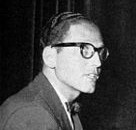 Last Monday, April 9, was the 84th birthday of the University of California professor of math who made a name for himself in the 1960s as a composer and performer of parody songs: Tom Lehrer (1928). His first public performance was in 1952 at a nightclub near Harvard, but he hit the big time – taking time off from teaching mathematics – between 1953 and 1965 with club performances and LPs featuring his witty, rapid-fire lampoons of social and political issues, including such classics as “The Vatican Rag.” Not generally known about Lehrer is that he is a Freethinker on religion. “I firmly believe all religion is bullshit,” Lehrer said in a 1984 interview. “To say that I am not a ‘fan’ of organized religion is putting it mildly... As for being ‘spiritual,’ ... I find enough mystery in mathematics to satisfy my spiritual needs.”
Last Monday, April 9, was the 84th birthday of the University of California professor of math who made a name for himself in the 1960s as a composer and performer of parody songs: Tom Lehrer (1928). His first public performance was in 1952 at a nightclub near Harvard, but he hit the big time – taking time off from teaching mathematics – between 1953 and 1965 with club performances and LPs featuring his witty, rapid-fire lampoons of social and political issues, including such classics as “The Vatican Rag.” Not generally known about Lehrer is that he is a Freethinker on religion. “I firmly believe all religion is bullshit,” Lehrer said in a 1984 interview. “To say that I am not a ‘fan’ of organized religion is putting it mildly... As for being ‘spiritual,’ ... I find enough mystery in mathematics to satisfy my spiritual needs.”
 It 146 years ago last Tuesday, April 10, that the American Society for the Prevention of Cruelty to Animals (ASPCA) was chartered under the leadership of Henry Bergh (1866). Bergh (1813-1888) was horrified by the extensive cruelty he observed towards working horses, as well as stray cats and dogs, in New York City. Curiously, despite the depictions of St. Francis of Assisi surrounded by his loving birds, it was Europe under Christianity that was the worst offender against the principle of humane treatment of animals. Since it was Christian doctrine that animals have no souls, there was no Church prohibition against ill-treatment. Cockfights and dog fights, bear-baiting, and other inhumane treatment of animals for sport throughout the Middle Ages, thrived. And this was the period when organized religion was in the strongest position to object with some credibility. So the chartering of the ASPCA came about in amid a long silence from the representatives of God.
It 146 years ago last Tuesday, April 10, that the American Society for the Prevention of Cruelty to Animals (ASPCA) was chartered under the leadership of Henry Bergh (1866). Bergh (1813-1888) was horrified by the extensive cruelty he observed towards working horses, as well as stray cats and dogs, in New York City. Curiously, despite the depictions of St. Francis of Assisi surrounded by his loving birds, it was Europe under Christianity that was the worst offender against the principle of humane treatment of animals. Since it was Christian doctrine that animals have no souls, there was no Church prohibition against ill-treatment. Cockfights and dog fights, bear-baiting, and other inhumane treatment of animals for sport throughout the Middle Ages, thrived. And this was the period when organized religion was in the strongest position to object with some credibility. So the chartering of the ASPCA came about in amid a long silence from the representatives of God.
 It was 237 years ago last Wednesday, April 11, that the last execution for witchcraft took place in Germany (1775). History records that Anna Maria Schwiigel was legally executed in Bavaria for the crime of believing in a competing religion. The craft was so attractive to its medieval adherents that perhaps 300,000 were tortured and executed by Christians for their contrary opinion. The worst persecution of witches occurred in Germany and surrounding countries comprising the Holy Roman Empire. Here and there a voice expressed doubts that there really were witches with supernatural powers. But by the 1700s, coincidentally with the rise and influence of rationalism in Europe, the anti-witch fervor was dying out. Even Joan of Arc, who very possibly was a witch, was declared a saint in 1920. And just 190 years after the last witch was executed in Germany, the comedy “Bewitched” – about a middle-class witch who tried not to cast spells – began an eight-year run (1964-1972) on American television!
It was 237 years ago last Wednesday, April 11, that the last execution for witchcraft took place in Germany (1775). History records that Anna Maria Schwiigel was legally executed in Bavaria for the crime of believing in a competing religion. The craft was so attractive to its medieval adherents that perhaps 300,000 were tortured and executed by Christians for their contrary opinion. The worst persecution of witches occurred in Germany and surrounding countries comprising the Holy Roman Empire. Here and there a voice expressed doubts that there really were witches with supernatural powers. But by the 1700s, coincidentally with the rise and influence of rationalism in Europe, the anti-witch fervor was dying out. Even Joan of Arc, who very possibly was a witch, was declared a saint in 1920. And just 190 years after the last witch was executed in Germany, the comedy “Bewitched” – about a middle-class witch who tried not to cast spells – began an eight-year run (1964-1972) on American television!
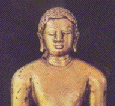 It was 2,572 years ago last Thursday, April 12, that by tradition, the most famous leader of Jainism, Mahavira (Sanskrit महावीर) was born (560 BCE). Like his contemporary, Buddha, Mahavira was born a prince. At age 30 Mahavira left his family and royal household, gave away everything he owned, and became a monk. Althought not the founder of Jainism, Mahavira is the only saint of the religion that is historically verifiable. In his travels, Mahavira organized a brotherhood of monks, who took vows of celibacy, nudity, self-mortification, and fasting. Jainism was not, in the beginning, meant to be a religion and the existence of God is irrelevant to Jain doctrine. Mahavira believed that the universe was self-sustaining and did not have a beginning. Instead, he believed the universe endless and that it operates according to natural law. Mahavira was, in fact, an atheist. His philosophical descendants, as often happens, turned this atheistic ethic into the supernaturalist religion we find mostly in India today.
It was 2,572 years ago last Thursday, April 12, that by tradition, the most famous leader of Jainism, Mahavira (Sanskrit महावीर) was born (560 BCE). Like his contemporary, Buddha, Mahavira was born a prince. At age 30 Mahavira left his family and royal household, gave away everything he owned, and became a monk. Althought not the founder of Jainism, Mahavira is the only saint of the religion that is historically verifiable. In his travels, Mahavira organized a brotherhood of monks, who took vows of celibacy, nudity, self-mortification, and fasting. Jainism was not, in the beginning, meant to be a religion and the existence of God is irrelevant to Jain doctrine. Mahavira believed that the universe was self-sustaining and did not have a beginning. Instead, he believed the universe endless and that it operates according to natural law. Mahavira was, in fact, an atheist. His philosophical descendants, as often happens, turned this atheistic ethic into the supernaturalist religion we find mostly in India today.
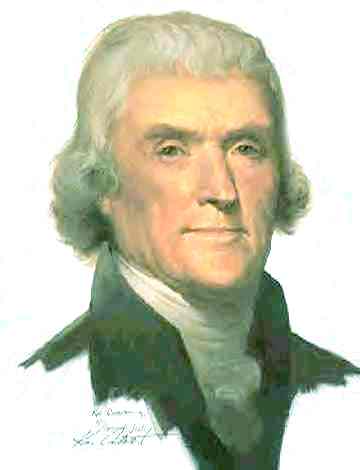 It was 269 years yesterday, April 13, that the author of the Declaration of Independence and the Virginia Statute for Religious Freedom, Thomas Jefferson, was born (1743). Jefferson served as third US President, from 1801 to 1809, after serving as Vice President under John Adams. Jefferson and Adams were poles apart politically, but both were advanced skeptics regarding religion. While he was president, Jefferson wrote his most famous statement in a letter to the Danbury Baptist Association, a religious minority in Connecticut opposed to taxation to support the majority Congregationalist Church: “Believing with you as I do that religion is a matter which lies solely between man and his God, that he owes account to none other for his faith or his worship, that the legitimate powers of government reach actions only, and not opinions, I contemplate with sovereign reverence that act of the whole American people which declared that their Legislature should ‘make no law respecting an establishment of religion, or prohibiting the free exercise thereof,’ thus building a wall of separation between Church and State.
It was 269 years yesterday, April 13, that the author of the Declaration of Independence and the Virginia Statute for Religious Freedom, Thomas Jefferson, was born (1743). Jefferson served as third US President, from 1801 to 1809, after serving as Vice President under John Adams. Jefferson and Adams were poles apart politically, but both were advanced skeptics regarding religion. While he was president, Jefferson wrote his most famous statement in a letter to the Danbury Baptist Association, a religious minority in Connecticut opposed to taxation to support the majority Congregationalist Church: “Believing with you as I do that religion is a matter which lies solely between man and his God, that he owes account to none other for his faith or his worship, that the legitimate powers of government reach actions only, and not opinions, I contemplate with sovereign reverence that act of the whole American people which declared that their Legislature should ‘make no law respecting an establishment of religion, or prohibiting the free exercise thereof,’ thus building a wall of separation between Church and State.
Jefferson’s “Act for Establishing Religious Freedom in Virginia” put an end there to the compulsory funding of so-called “established” churches. In this Act he urged, “no man shall be compelled to frequent or support any religious worship, place, or ministry whatsoever, nor shall be enforced, restrained, molested, or burthened in his body or goods, nor shall otherwise suffer, on account of his religious opinions or belief; but that all men shall be free to profess, and by argument to maintain, their opinions in matters of religion, and that the same shall in no wise diminish, enlarge, or affect their civil capacities.”
 It was 63 years ago yesterday that British-born American journalist Christopher Hitchens was born (1949). Hitchens has admitted admiration for and influence from such notables as Thomas Paine and Thomas Jefferson. His bona fides as not only an atheist, but an “antitheist” were solid: “I’m an atheist. I’m not neutral about religion, I’m hostile to it. I think it is a positively bad idea, not just a false one. And I mean not just organized religion, but religious belief itself.” He described organized religion as “violent, irrational, intolerant, allied to racism, tribalism, and bigotry, invested in ignorance and hostile to free inquiry, contemptuous of women and coercive toward children.” Hitchens died on 15 December 2011 at age 62.
It was 63 years ago yesterday that British-born American journalist Christopher Hitchens was born (1949). Hitchens has admitted admiration for and influence from such notables as Thomas Paine and Thomas Jefferson. His bona fides as not only an atheist, but an “antitheist” were solid: “I’m an atheist. I’m not neutral about religion, I’m hostile to it. I think it is a positively bad idea, not just a false one. And I mean not just organized religion, but religious belief itself.” He described organized religion as “violent, irrational, intolerant, allied to racism, tribalism, and bigotry, invested in ignorance and hostile to free inquiry, contemptuous of women and coercive toward children.” Hitchens died on 15 December 2011 at age 62.
Asked if his serious illness has affected his view of the afterlife, in a panel discussion including atheist writer Sam Harris, Hitchens replied, “I would say it fractionally increases my contempt for the false consolation of religion and my dislike for the dictatorial and totalitarian part of it. I presume what I say by the first is self-evident. What I mean by the second is, it’s considered perfectly normal in this society to approach dying people who you don’t know, but who are unbelievers, and say, ‘Now are you going to change your mind?’ In fact, it’s considered almost a polite question.
As you know, there’s a long history of fraud about this. People claim that Darwin had a deathbed recantation, they’ve made up lies about Thomas Paine. It goes on all the time. It’s a very nasty little history. But there’s also a horrible undertone of blackmail to it. People write and say, ‘Look, you’ve got about one chance left now. Aren’t you going to take it? I’m writing to you as a friend.’ They’ve even tried it on me when I’ve been very ill, and didn’t have quite the vinegar I’d like to have had, in a hospital bed. I don’t mind. I can take it. But I think there are a lot of people older than myself, iller than myself and, perhaps, at the risk of seeming conceited, less educated than myself, to whom that’s a horrible experience. It’s very depressing and alarming to be spoken to in that way.
I mean, if Sam [Harris] and I were to form a corps of people to go around religious hospitals, which is what happens in reverse, and say to people who are lying in pain, ‘Did you say you were Catholic?’ ‘Yes.’ ‘Well, look, you may only have a few days left, but you don’t have to live them as a serf, you know. Just recognize that that was all bullshit, that the priests have been cheating you, and I guarantee you you’ll feel better.’ I don’t think that would be very ethical. I think it would be something of a breach of taste. But if it’s in the name of God, it has a social license. Well ‘fuck that,’ is what I say. And will say if it’s my last breath.
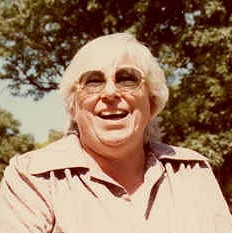 It was also yesterday, but 93 years ago on April 13, that American atheist activist, and founder of the organization American Atheists, Madalyn Murray O’Hair was born (1919). Murray never passed the bar exam and never practiced law, but that did not prevent her from bringing one case all the way to the Supreme Court. While living in Baltimore, Maryland, in 1960, Murray filed a lawsuit against the Baltimore City Public School System because her son Bill was required to participate in Bible readings in his public school. When her son refused, he was subjected to bullying, and Murray charged that school policy violated the separation clause of the First Amendment of the US Constitution. In 1963, the Court voted 8-1 for Murray’s argument, effectively banning school-sponsored, coerced prayer and Bible verse recitation in public schools. This court victory rewarded Murray with the epithet, “The Most Hated Woman in America,” a title she relished – and possibly invented.
It was also yesterday, but 93 years ago on April 13, that American atheist activist, and founder of the organization American Atheists, Madalyn Murray O’Hair was born (1919). Murray never passed the bar exam and never practiced law, but that did not prevent her from bringing one case all the way to the Supreme Court. While living in Baltimore, Maryland, in 1960, Murray filed a lawsuit against the Baltimore City Public School System because her son Bill was required to participate in Bible readings in his public school. When her son refused, he was subjected to bullying, and Murray charged that school policy violated the separation clause of the First Amendment of the US Constitution. In 1963, the Court voted 8-1 for Murray’s argument, effectively banning school-sponsored, coerced prayer and Bible verse recitation in public schools. This court victory rewarded Murray with the epithet, “The Most Hated Woman in America,” a title she relished – and possibly invented.
Said Murray, “But people … don’t even know what atheism is. It’s not a negation of anything. You don’t have to negate what no one can prove exists. No, atheism is a very positive affirmation of man’s ability to think for himself, to do for himself, to find answers to his own problems. I’m thrilled to feel that I can rely on myself totally and absolutely; that my children are being brought up so that when they meet a problem they can’t cop out by foisting it off on God. Madalyn Murray’s going to solve her own problems, and nobody’s going to intervene. It’s about time the world got up off its knees and looked at itself in the mirror and said: ‘Well, we are men. Let’s start acting like it.’”
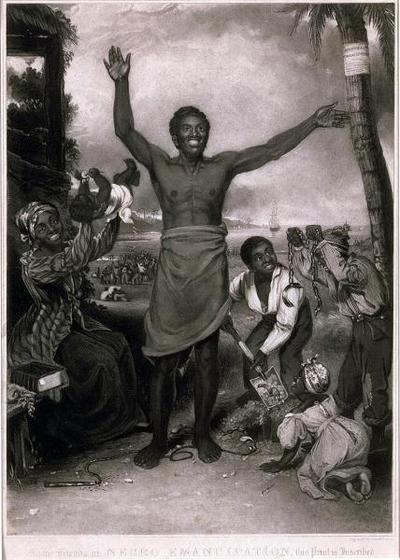 It was 237 years ago today, April 14, that the world’s first abolitionist society was established (1775). The Society for the Relief of Free Negroes Unlawfully Held in Bondage came to life in Philadelphia with the assistance of the Quakers and the philosophical backing of Benjamin Franklin and his fellow Deist, Thomas Paine. It was Paine who had published in the same year a pamphlet opposing slavery entitled, African Slavery in America. The idea of ending slavery was slowly taking hold among the pagans of Rome when the Empire collapsed in the West. In fact, the transformation of slavery to serfdom, which was slavery without the more humane aspects it had acquired under the pagans, was a Christian innovation. What about Islam? Arab-Muslim dealers sold slaves to eager Spanish and Portuguese (Christian) buyers. The American Baptist, Methodist and Anglican churches owned a total of 600,000 slaves. Nowhere in the Bible is slavery even remotely condemned as a profound evil. When civilization turned against slavery at last – in Britain in 1833; in the US in 1865 – it was with the guidance of thinkers like Paine and Franklin and John Locke. It took the rise of Rationalism and Freethought, and the gradual realization that without a social policy the churches would become irrelevant, to elicit action from people on their knees.
It was 237 years ago today, April 14, that the world’s first abolitionist society was established (1775). The Society for the Relief of Free Negroes Unlawfully Held in Bondage came to life in Philadelphia with the assistance of the Quakers and the philosophical backing of Benjamin Franklin and his fellow Deist, Thomas Paine. It was Paine who had published in the same year a pamphlet opposing slavery entitled, African Slavery in America. The idea of ending slavery was slowly taking hold among the pagans of Rome when the Empire collapsed in the West. In fact, the transformation of slavery to serfdom, which was slavery without the more humane aspects it had acquired under the pagans, was a Christian innovation. What about Islam? Arab-Muslim dealers sold slaves to eager Spanish and Portuguese (Christian) buyers. The American Baptist, Methodist and Anglican churches owned a total of 600,000 slaves. Nowhere in the Bible is slavery even remotely condemned as a profound evil. When civilization turned against slavery at last – in Britain in 1833; in the US in 1865 – it was with the guidance of thinkers like Paine and Franklin and John Locke. It took the rise of Rationalism and Freethought, and the gradual realization that without a social policy the churches would become irrelevant, to elicit action from people on their knees.
We can look back, but the Golden Age of Freethought is now. You can find full versions of these pages in Freethought history at the links in this blog posting.

